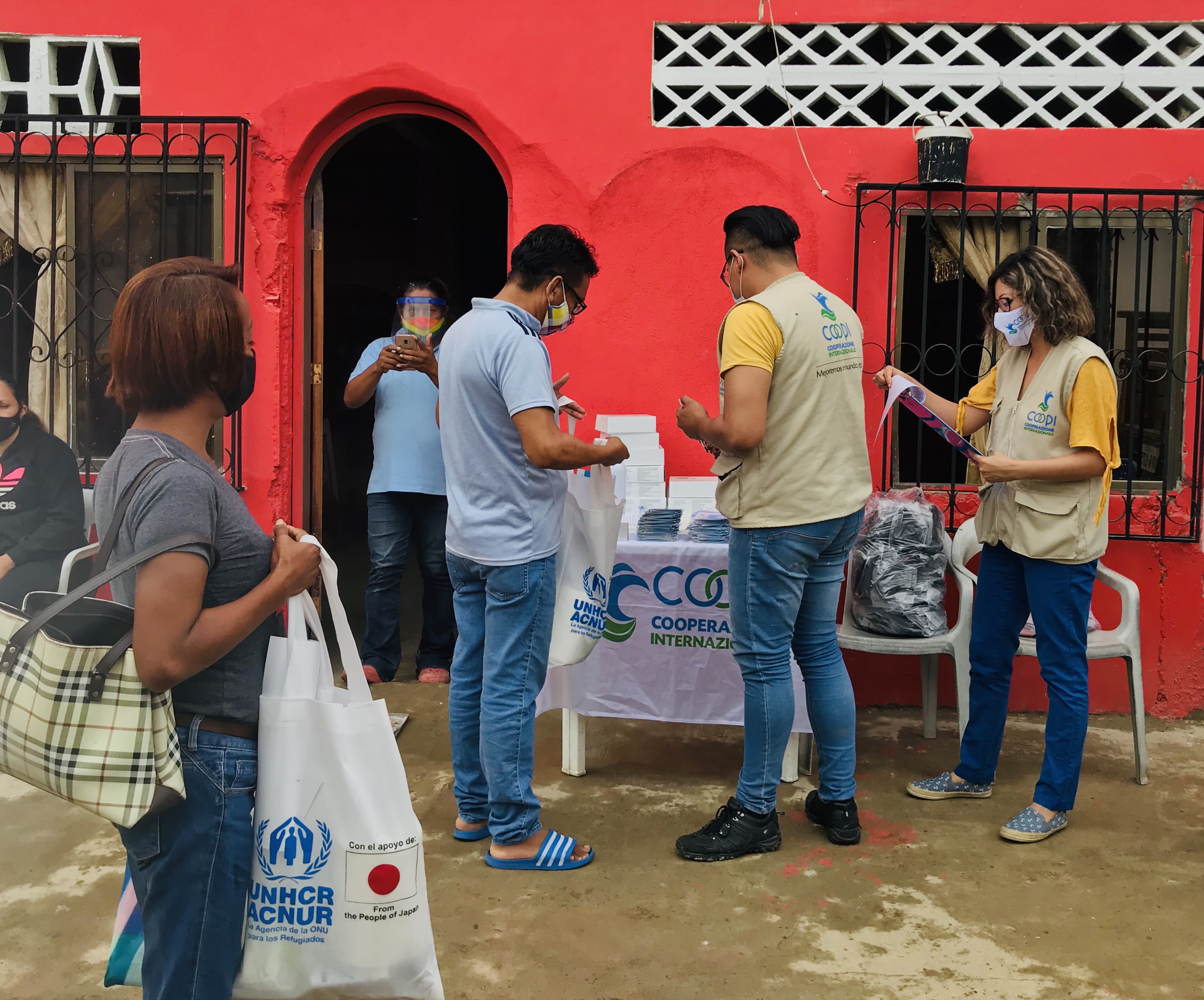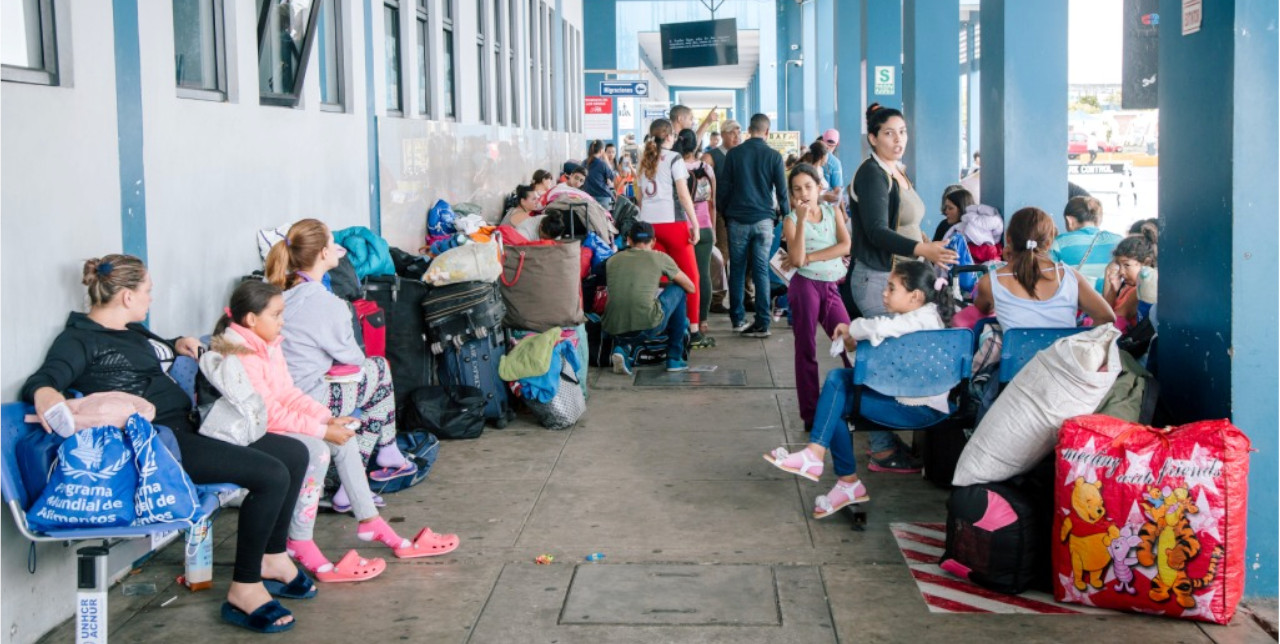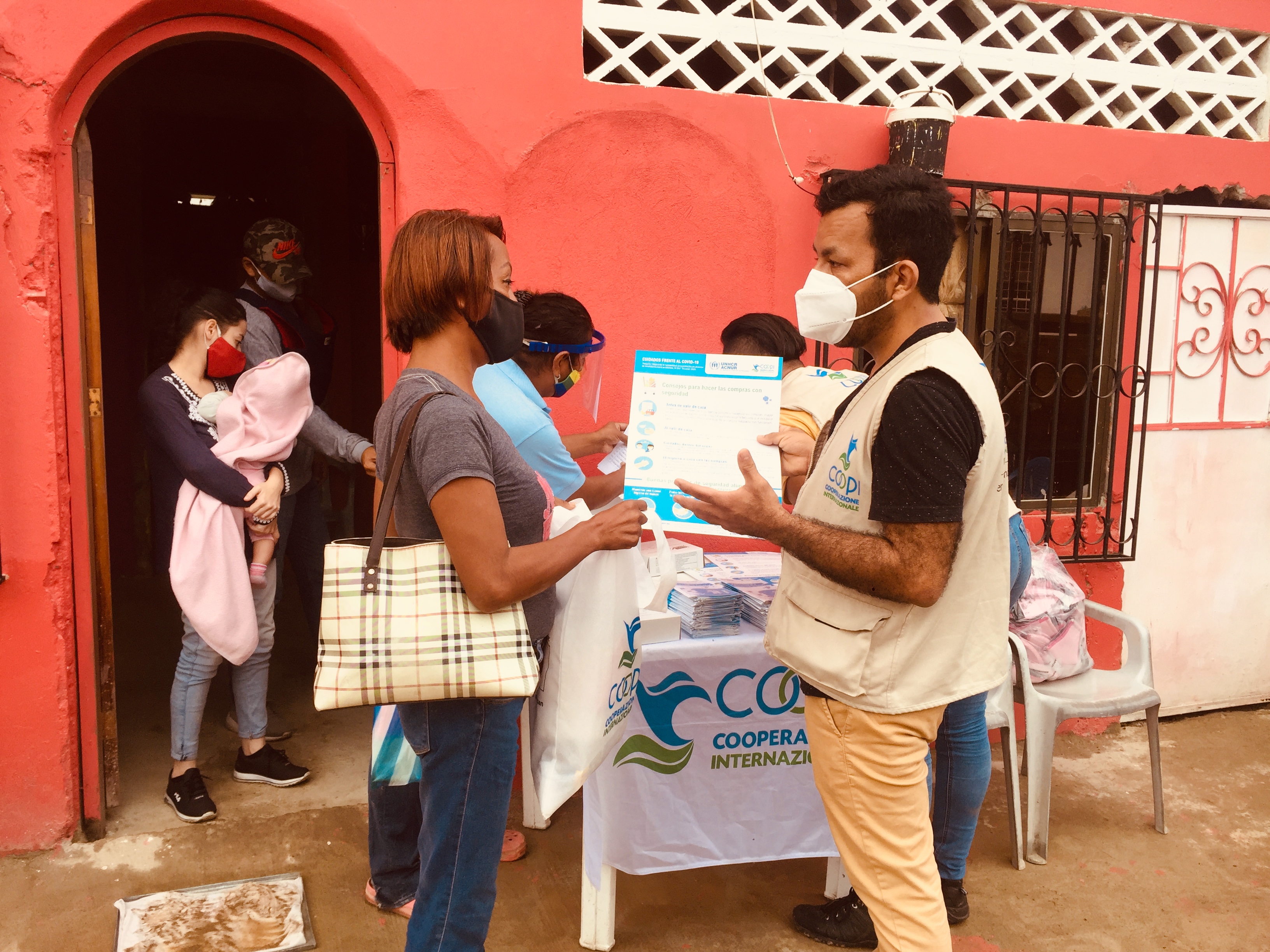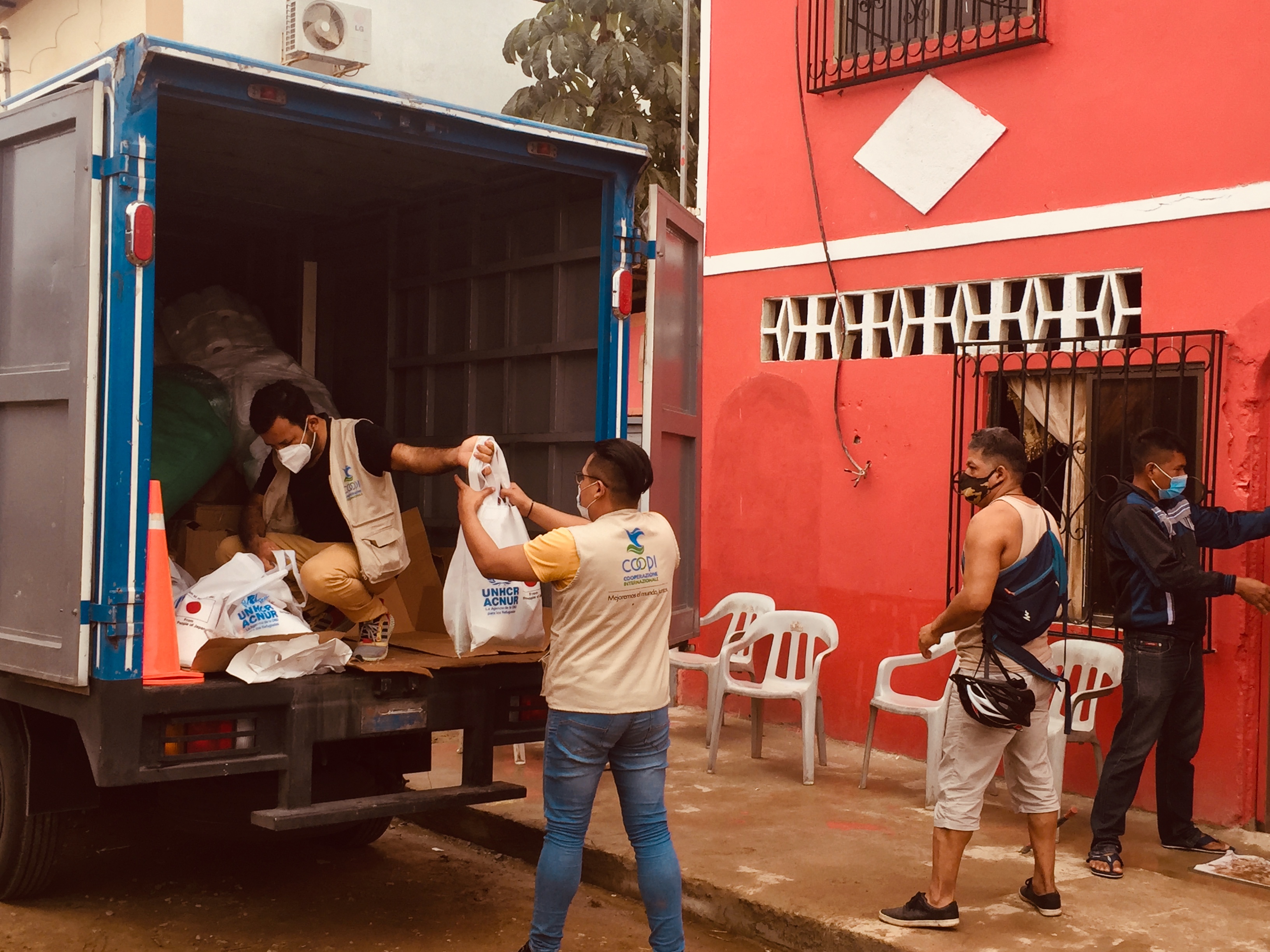28-07-2020 | di COOPI
Ecuador. We improve the living conditions of the most vulnerable families
COOPI restarts its operational activities in Ecuador with the project "Improving the habitability for an effective integration of the population in situation of human mobility in Machala, El Oro". Through the project, funded by the United Nations High Commissioner for Refugees (UNHCR), COOPI will intervene in the country, until the end of the year, with the aim of improving the living conditions of vulnerable families who have difficulties accessing services such as housing, hygiene services and food security.
Thanks to the implementation of an integral approach, COOPI will support migrant families at risk of eviction or living in accommodations that do not meet the minimum standards of habitability. In total, COOPI plans to address around 100 families, providing them with instruments which will guarantee the rental of a safe and dignified accommodation.
Awareness on Covid-19
At the same time COOPI will distribute 2,503 kits containing hygiene and biosecurity items and 400 kits consisting of tools aimed at guaranteeing beneficiaries’ food security.
Kits distribution
The project wants to be a response to the emergency linked with the Venezuelan crisis. In the latest years, Ecuador has been facing several challenges that add up to the historic Colombian migration and the national economic crisis: the massive arrival of migrants, asylum seekers and / or refugees from Venezuela created an emergency which has been complex to manage due to the lack of an integrated response system.

Kits distribution
In addition, the already complex social, political and economic situation led to an increase in discrimination against people in the move who are in need of international protection, generating a huge impact on their living conditions, including the capacity of ensuring decent accommodation. This reality is also reflected in COOPI’s intervention areas (provinces of El Oro, Azuay and Loja), where actions that will benefit both Venezuelan families and the local population will be taken in the coming months.




 Ecuador
Ecuador

